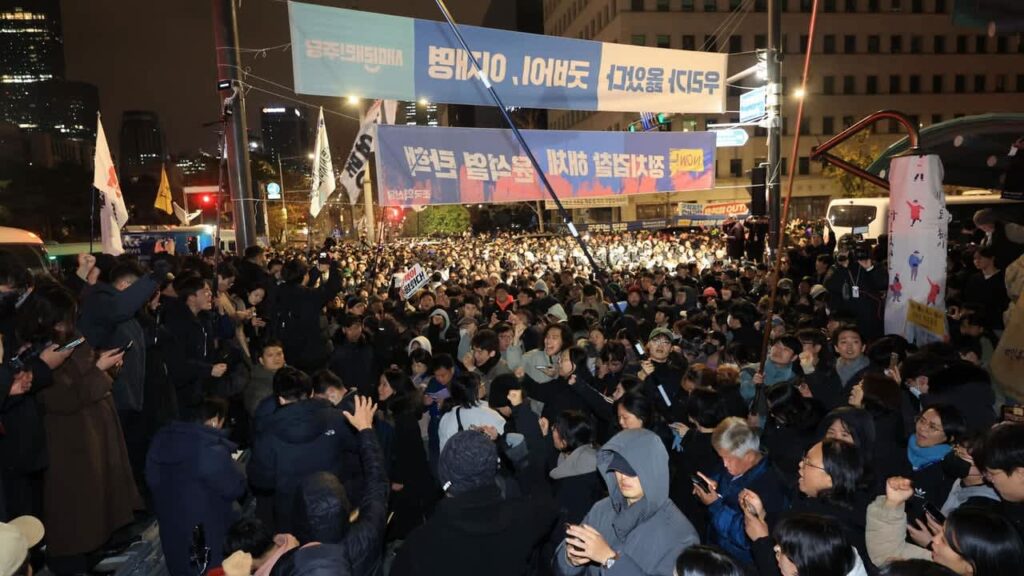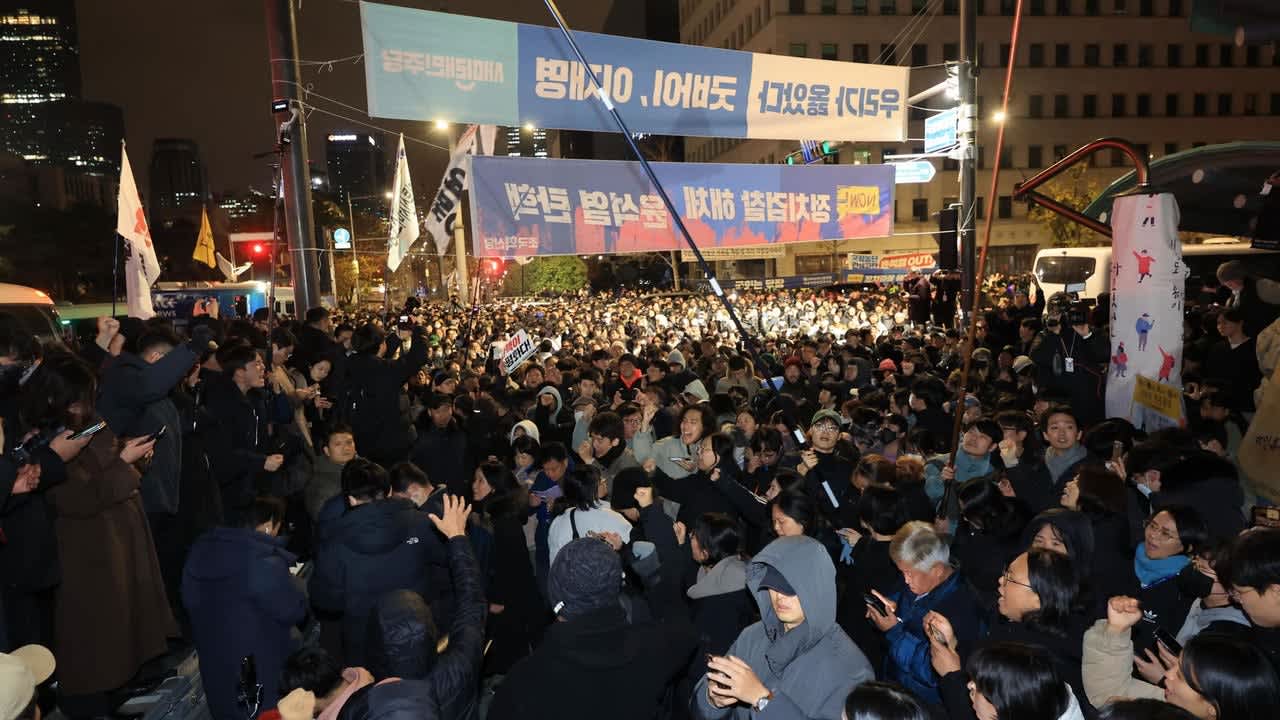On December 3, 2024, South Korea faced one of the most significant political crises in its recent history. President Yoon Suk-yeol declared martial law throughout the country, citing the need to protect the “constitutional order” against alleged “anti-state” activities and accusing the opposition of attempting to “overthrow free democracy.” The measure, which had not been applied in South Korea since 1981, triggered mass protests, public outrage, and legal actions against key figures in his administration.
Why Was Martial Law Declared?
President Yoon Suk-yeol justified the decision as a way to contain “anti-state forces” that, according to him, were seeking to destabilize the country. He accused the opposition, which controls the National Assembly, of being a “pro-North Korean force” that posed a threat to national security. This accusation sparked strong rejection from the opposition and civil society.
The announcement was broadcast via a televised speech that caught the population by surprise, triggering alarm and concern across the country. Martial law meant direct military intervention in internal security, the restriction of civil liberties, and the censorship of public information.
Mass Protests and the Repeal of Martial Law
The reaction was immediate. Thousands of citizens took to the streets of Seoul and other cities to protest the measure. Images of the demonstrations showed South Korean citizens demanding the repeal of martial law and the resignation of President Yoon. The public viewed the move as an unprecedented authoritarian act in South Korea’s modern democratic era.
Faced with pressure from the population and political opposition, the National Assembly, dominated by opposition parties, convened an emergency session to demand the repeal of martial law. Finally, after only six hours of being in effect, President Yoon yielded to public pressure and announced its repeal. In a subsequent speech, the president issued a public apology, stating: “My sincerest apologies for the anxiety this may have caused” and promised not to impose martial law again during his presidency. (politico.com)
Detention of Key Officials and Initial Arrests
The declaration of martial law not only drew political criticism but also led to legal consequences for some senior officials in Yoon’s administration. Former Defense Minister Kim Yong-hyun was arrested on charges of insurrection. He is accused of actively participating in the planning of martial law enforcement. This arrest marked the first legal action in the case and indicated that investigations would continue in search of other potential culprits. (apnews.com)
Kim Yong-hyun’s arrest came after a formal request by the South Korean Prosecutor’s Office, which argued the need to investigate the events surrounding the imposition of martial law. This move has been seen as a critical step in safeguarding democracy and holding those responsible for power abuse accountable.
Attempt to Impeach President Yoon Suk-yeol
The opposition, led by the majority in the National Assembly, attempted to impeach President Yoon through a motion of impeachment. However, the motion failed to reach the two-thirds majority required for approval due to a boycott by several lawmakers from the ruling People Power Party (PPP). This maneuver allowed President Yoon to avoid impeachment, but it deepened the crisis of confidence in his leadership. (apnews.com)

International Reactions
The declaration and subsequent repeal of martial law in South Korea raised concerns among its international allies, including the United States and Japan. Both countries expressed unease about the political instability in South Korea, especially at a time of growing tensions with North Korea.
Human rights organizations and the international community criticized the imposition of martial law, calling on the South Korean government to respect democratic institutions and civil rights. The United States, one of South Korea’s key allies, urged the government to guarantee respect for the rule of law and avoid further authoritarian measures.
Future Implications for Democracy in South Korea
The declaration of martial law has left a deep mark on South Korean politics. President Yoon’s credibility has been severely damaged, and the opposition has intensified calls for accountability. The fact that martial law was repealed so quickly reflects the power of civil society and the capacity of South Korean citizens to mobilize in defense of democracy.
Additionally, the arrest of Kim Yong-hyun could open the door to further investigations and possible charges against other senior officials in Yoon’s administration. The future actions of the South Korean Prosecutor’s Office will be crucial in determining whether this political crisis leads to broader reform in the oversight of presidential powers.
President Yoon Suk-yeol’s declaration of martial law marked a critical moment in the history of South Korean democracy. What began as a presidential decision to “protect the constitutional order” ended with public apologies, mass protests, and the repeal of the measure after just six hours. President Yoon’s image has been tarnished, and public trust in his government has been significantly eroded.
The arrest of key officials and the possibility of further investigations highlight the gravity of the situation. With the opposition pushing for impeachment, Yoon Suk-yeol’s political future hangs in the balance. South Korean society has demonstrated that it will not accept the erosion of democratic rights, which could signal the beginning of a new chapter in the country’s political landscape.
